When it comes to hauling a dump trailer, selecting the right truck is pivotal to ensure efficiency, safety, and performance. Whether you are a landscape contractor, a construction professional, or simply engaged in personal projects, understanding the variables that define your selection can simplify your decision-making process. Let’s take a detailed journey through the essential factors that govern your choice, ensuring you have all the information necessary to make an informed purchase.
Understanding Dump Trailers: Types and Capacities
What Exactly is a Dump Trailer?
A dump trailer is a versatile piece of equipment designed to transport materials such as sand, gravel, dirt, or debris. They typically feature a hinged rear door and a hydraulic lift system allowing for easy unloading of their contents. Their configuration and strength make them popular in construction, landscaping, and waste management.

Types of Dump Trailers
Dump trailers come in various types, each tailored to specific hauling needs:
| Type | Description | Common Uses |
|---|---|---|
| Standard Dump Trailers | Most commonly used; includes a straightforward design for general-purpose hauling. | Construction sites, landscaping |
| Gooseneck Dump Trailers | Designed with a gooseneck hitch that offers better stability and weight distribution. | Heavy loads, long-distance travel |
| Tilt Trailers | Incorporates a tilting mechanism for easy loading and unloading. | Equipment transport, landscaping |
| Semi-Dump Trailers | Used in combination with a tractor; ideal for heavy and bulk material transport. | Construction, large-scale projects |
Understanding Capacities
The capacity of dump trailers often varies from 3,000 pounds for smaller options to over 14,000 pounds for larger, more robust models. It’s essential to match the truck’s towing capabilities with the trailer’s gross vehicle weight rating (GVWR) to ensure compliance and safety.
Key Factors to Consider When Choosing a Truck
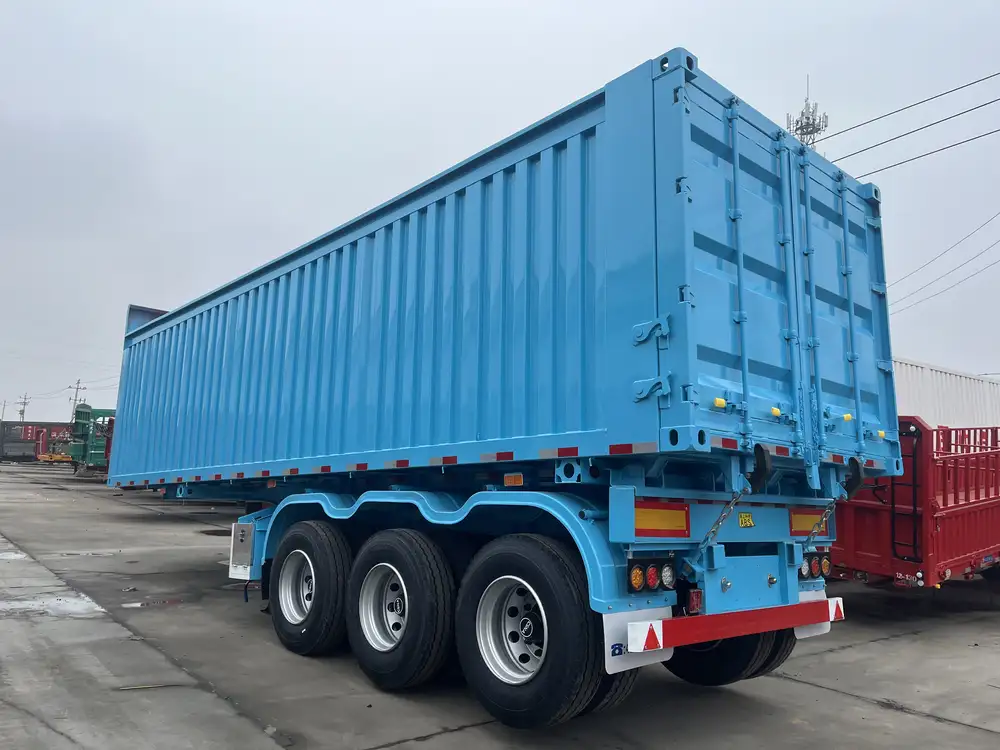
1. Towing Capacity
The first and foremost consideration is the truck’s towing capacity. This figure indicates the maximum weight your truck can safely pull. It’s crucial to calculate your total weight, including the dump trailer and the cargo load, before making a purchase.
Towing Capacity Examples:
| Truck Model | Towing Capacity (lbs) |
|---|---|
| Ford F-150 | Up to 14,000 |
| Chevrolet Silverado 1500 | Up to 13,300 |
| Ram 1500 | Up to 12,750 |
| GMC Sierra 1500 | Up to 12,200 |
| Ford Super Duty | Up to 37,000 |
2. Truck Specifications and Engine Types
Engine Power
The heart of your truck, the engine, significantly affects towing efficiency. Larger engines, such as V8s, generally provide the torque necessary for hauling heavier loads, while smaller engines like V6s may suffice for lighter applications.
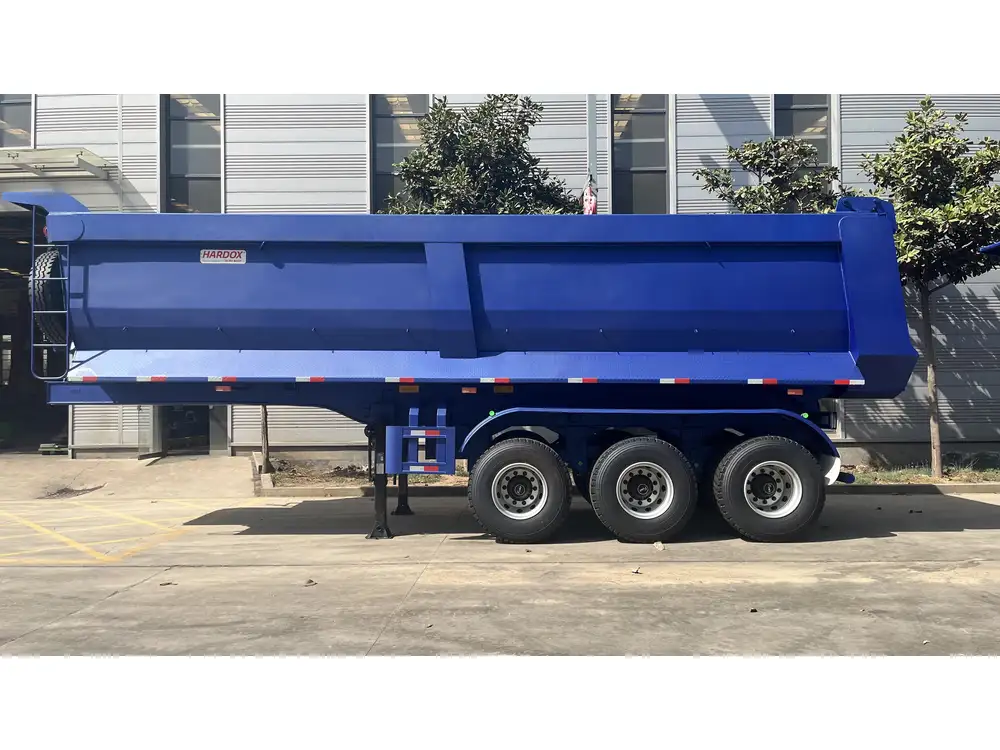
Transmission
The choice of transmission is equally crucial. Trucks equipped with automatic transmissions tend to offer smoother towing experiences, particularly in stop-and-go scenarios, while manual transmissions provide a more hands-on approach, which can be beneficial in off-road situations.
3. Axle Ratio
The axle ratio relates the rotational speed of the truck’s drive wheels to its engine. A lower axle ratio offers more torque, which is ideal for towing. Conversely, a higher axle ratio may enhance fuel efficiency during light loads.
4. Braking Capacity
A crucial factor often overlooked is the truck’s ability to stop. Ensure your truck can handle the trailer and its load — an improperly matched stopping ability is a significant safety hazard. Look for trucks with:
- Trailer brake controller
- Anti-lock braking system (ABS)
- Payload and GVWR regulations adherence
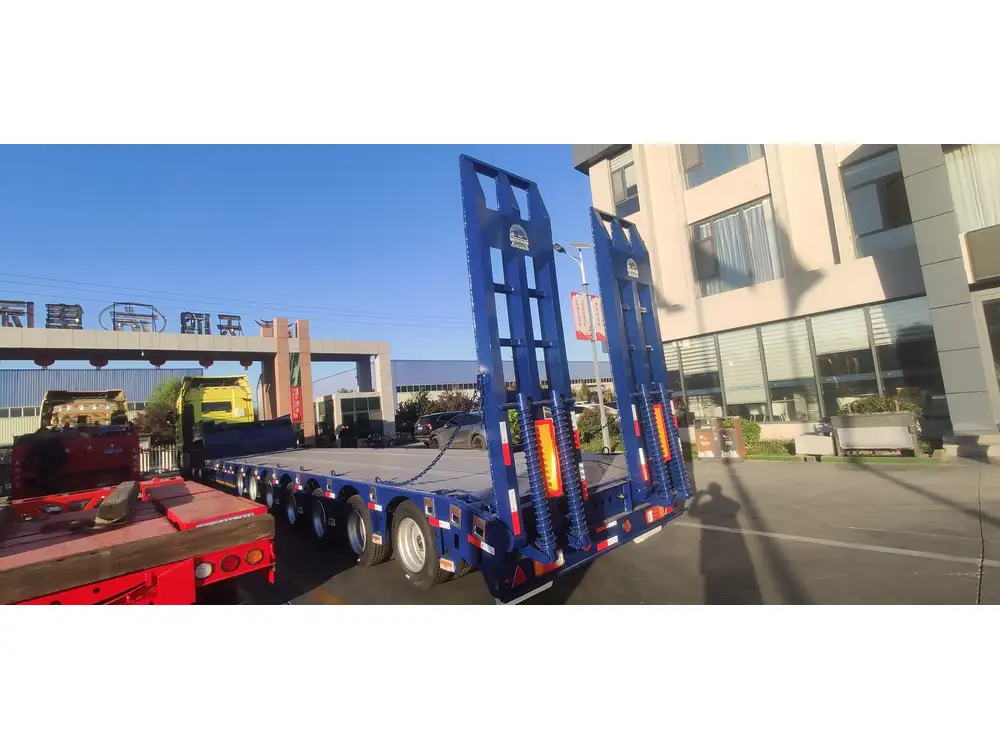
Safety First: Brake Systems and Stabilization
Importance of Brake Systems
When hauling heavy loads, the braking system’s effectiveness becomes increasingly critical. Trucks that come equipped with integrated trailer brake controllers can ensure smooth and safe deceleration when hauling a dump trailer.
Stability Enhancements
To prevent swaying or unsafe handling while on the road, consider trucks that offer stability control and sway mitigation systems, especially when navigating uneven terrain or inclement weather.

Comfort and Convenience Features
Cabin Space and Ergonomics
Choosing a truck that offers ample cabin space is not just about comfort; it also allows for better visibility and control while towing. Features to look for include:
- Adjustable seating for optimal positioning
- Ample legroom to prevent fatigue during long hauls
- Advanced infotainment systems for navigation and communication
Storage Capacity
When towing a dump trailer, you might not have much room for additional equipment, tools, or personal items. Look for trucks with under-seat storage, glove compartment space, and multifunctional features like toolboxes integrated into the truck bed.

Fuel Efficiency and Engine Choices
Gas vs. Diesel Engines
When comparing gas and diesel engines, diesel options typically offer higher torque and better fuel efficiency, especially at higher loads, but they come at a premium cost. Gas engines may be suitable for lighter projects and offer lower upfront costs. The decision often depends on personal preference and specific use cases.
Fuel Economy
Comparative aspects of fuel economy indicate that models with better aerodynamics and lighter weights tend to perform better. With the right choice, you can save significantly on fuel costs over time.
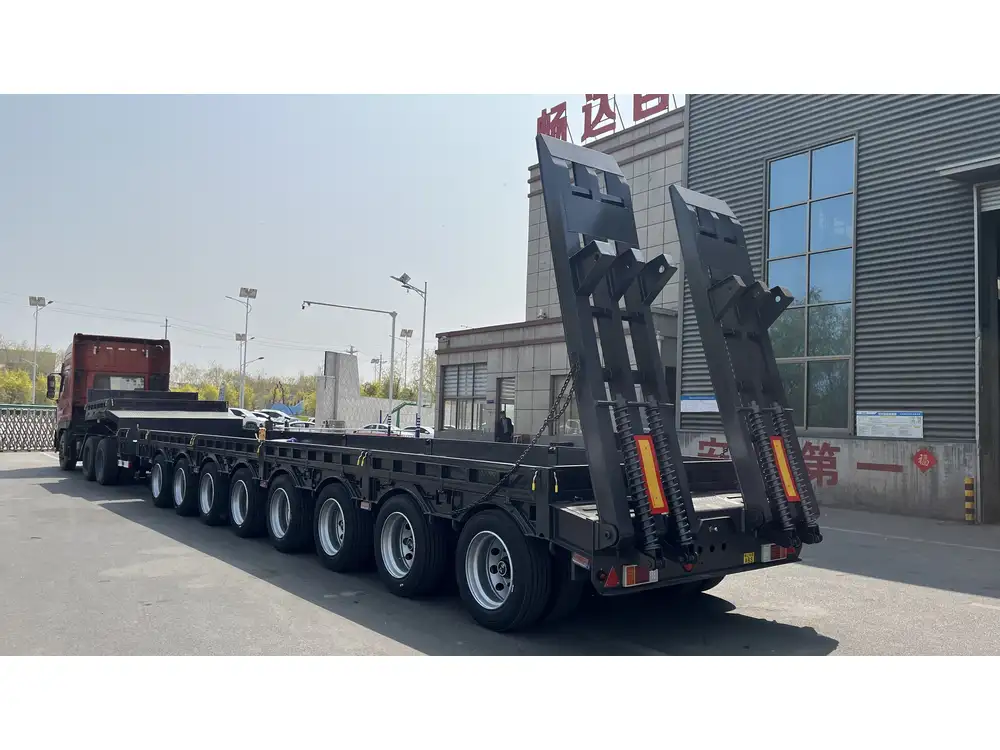
Additional Accessories and Customization
Hitch Types and Selection
The type of hitch used will correlate directly with the capabilities of both the truck and the dump trailer. Ensure compatibility between your truck’s hitch receiver and the hitch type of the dump trailer. Consider common hitch types:
- Receiver Hitches: Versatile and adjustable.
- Gooseneck Hitches: Enhanced stability for heavier trailers.
Load Distribution Systems
Using load distribution hitches can significantly reduce strain on your truck’s rear axle and improve handling performance. These systems are particularly useful when carrying heavy loads, providing a more level ride.
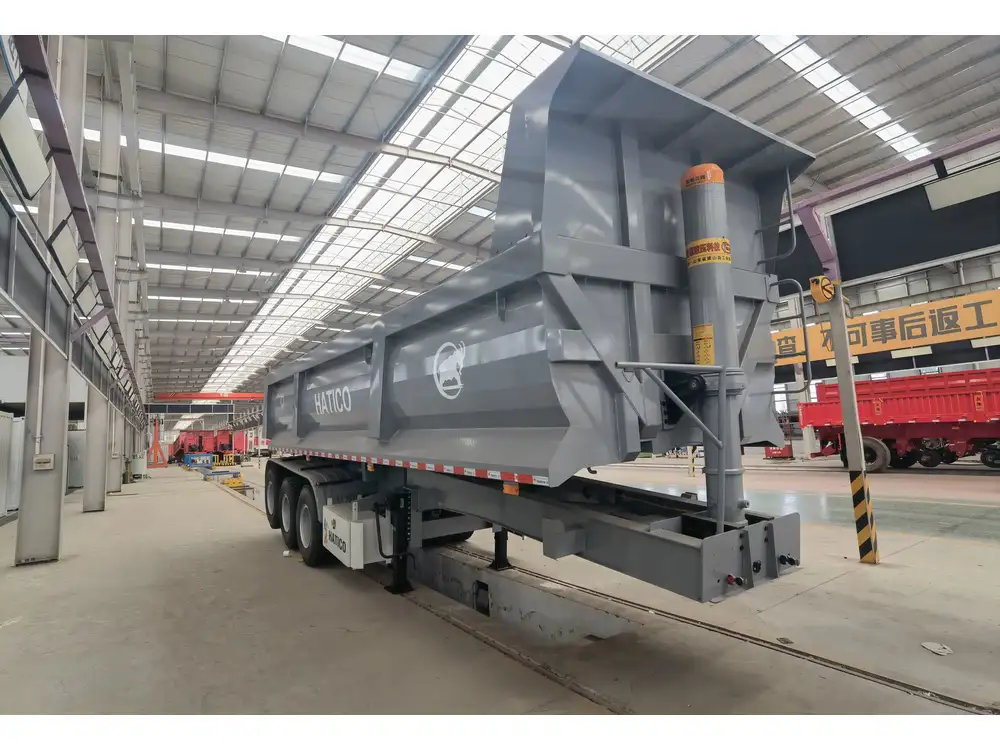
Budgeting: Cost Considerations
Initial Investment vs. Long-Term Expenses
Before finalizing a purchase, consider not just the upfront costs of the truck but also the long-term expenses associated with:
- Insurance premiums
- Registration fees
- Maintenance and repair costs
- Fuel consumption
Financing Options
Many dealers offer financing plans tailored for commercial use. It’s advisable to explore several options to ensure you obtain the most favorable terms.
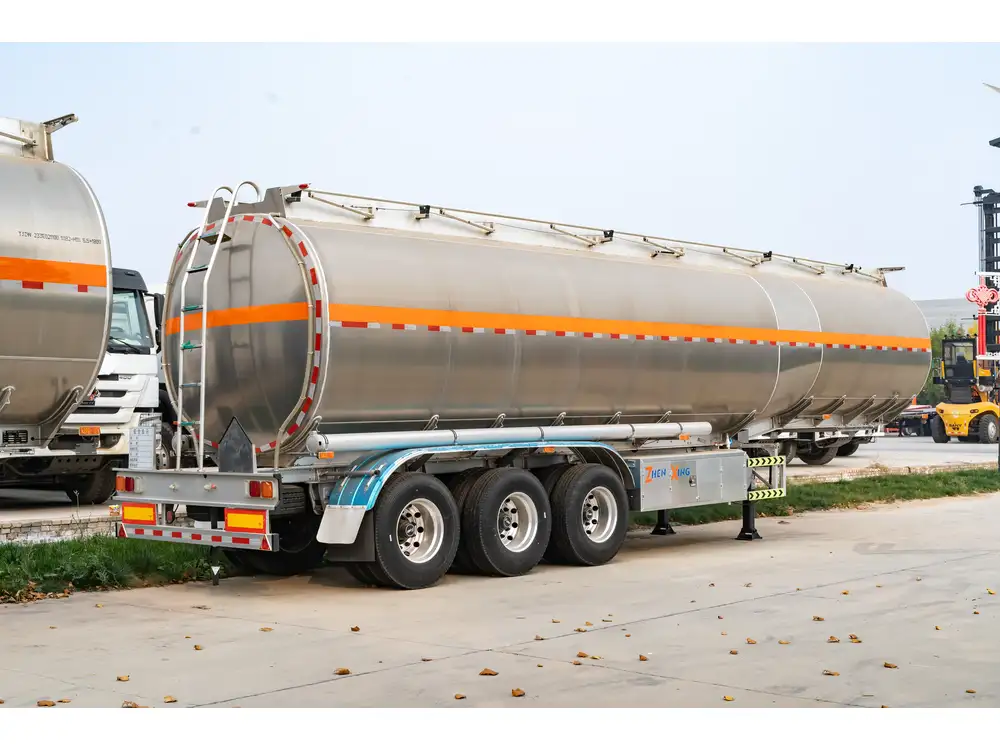
Maintenance Needs and Durability
Routine Maintenance
Investing in a durable truck such as those designed specifically for towing will minimize maintenance costs and downtime. Regular inspections, oil changes, and brake checks should not be overlooked.
Warranty and Service Packages
Select models that come with robust warranty options and consider extended service packages, particularly for trucks that endure significant wear and tear from towing activities.
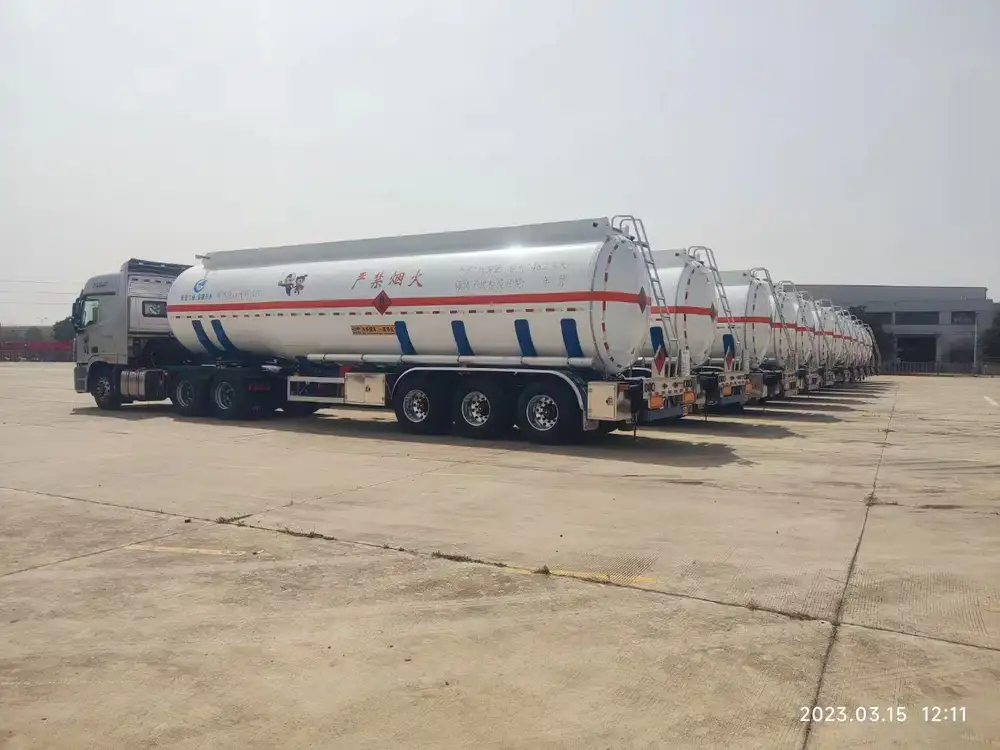
Final Thoughts: Making the Right Choice
Choosing the appropriate truck for hauling a dump trailer is a multifaceted decision that hinges on several factors, including towing capacity, engine performance, safety features, and personal needs. By assessing your requirements meticulously and maintaining flexibility in your options, you can select the ideal combination of vehicle and equipment to maximize efficiency in your hauling operations.
With this comprehensive understanding, we aim to guide you through an informed decision-making process that minimizes the potential for frustration and enhances your overall hauling capabilities. Whether you are in the construction, landscaping, or personal projects arena, the right truck will undoubtedly simplify your operations and boost productivity.
In sum, it is prudent to consider your unique requirements, consult your dealer about available options, and above all, prioritize safety and operational efficiency. Your journey to hauling with confidence begins today.



